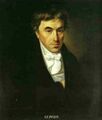Template:Selected anniversaries/December 22: Difference between revisions
No edit summary |
No edit summary |
||
| Line 46: | Line 46: | ||
||Thomas "Tommy" Harold Flowers, MBE (b. 22 December 1905) was an English engineer with the British Post Office. During World War II, Flowers designed and built Colossus, the world's first programmable electronic computer, to help solve encrypted German messages. | ||Thomas "Tommy" Harold Flowers, MBE (b. 22 December 1905) was an English engineer with the British Post Office. During World War II, Flowers designed and built Colossus, the world's first programmable electronic computer, to help solve encrypted German messages. | ||
||Boris Yakovlevich Levin (b. 22 December 1906) was a Soviet mathematician who made significant contributions to function theory. | |||
||Hermann Theodor Simon (d. 22 December 1918, Göttingen) was a German physicist. | ||Hermann Theodor Simon (d. 22 December 1918, Göttingen) was a German physicist. | ||
Revision as of 21:13, 1 December 2017
1550: Philosopher and academic Cesare Cremonini born. His work will promote rationalism (against revelation) and Aristotelian materialism (against the dualist immortality of the soul) inside scholasticism.
1551: Explorer Cornelis de Houtman publishes "The Legend of Neptune Slaughter, a Tale of Monstrous Disaster from Beyond the Islands and the Oceans of the Furthest East."
1732: Inventor, engineer, and businessman Richard Arkwright born. Later in his life Arkwright will be known as the "father of the modern industrial factory system."
1765: Mathematician Johann Friedrich Pfaff born. He will work on partial differential equations of the first order Pfaffian systems, as they are now called, which will become part of the theory of differential forms.
1858: Composer Giacomo Puccini born. He will be called "the greatest composer of Italian opera after Verdi".
1894: The Dreyfus affair begins in France, when Alfred Dreyfus is wrongly convicted of treason.
1920: Lecture by monster ends in riot.







